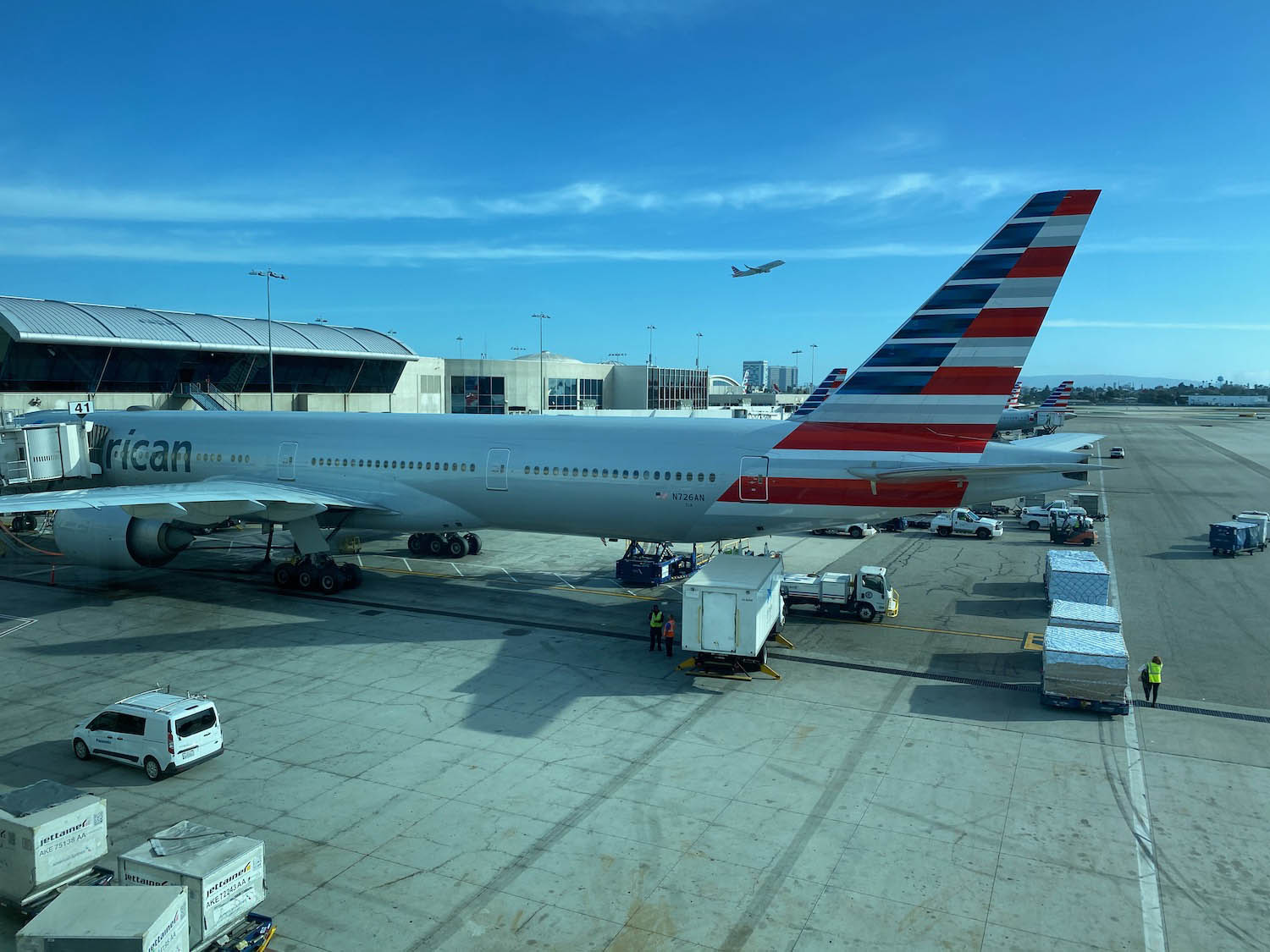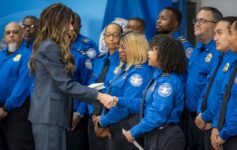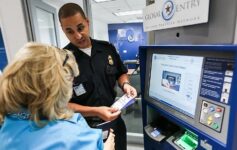
A trio of pilots at American Airlines involved in a near-miss with a Delta Air Lines jet at JFK last month have been subpoenaed by the NTSB after refusing the Board’s request for recorded interviews. What are these pilots trying to hide?
American Airlines Pilots Say No Recorded Interview – NTSB Responds With Subpoena
On January 13, 2023 a Delta Air Lines 737 and American Airlines 777 came dangerously close after the American Airlines aircraft ignored instructions from air traffic control and entered the wrong runway. As is customary, the National Transportation Safety Board (NTSB) is investigating the incident. But the pilots at the heart of this case at American Airlines are refusing to cooperate.
Since there is no flight deck recording available (it was overwritten when the plane continued to London as originally scheduled), NTSB wants to interview the pilots separately. It noted:
“NTSB has determined that this investigation requires that the flight crew interviews be audio recorded and transcribed by a court reporter to ensure the highest degree of accuracy, completeness, and efficiency.”
The NTSB also says this is customary for commercial airline investigations.
But the Allied Pilot Association, the union representing pilots at American Airlines, is pushing back. Let’s examine the union’s lengthy statement:
As the representative of the 15,000 pilots of American Airlines, the Allied Pilots Association has registered its concerns over the National Transportation Safety Board’s recent insistence on electronically recording crew interviews during investigations.
In most instances, NTSB incident investigations include requests to interview the crew members involved. Historically, these interviews have been conducted in a manner in which notes were taken by the parties or a stenographic record was produced.
Those methods have long been sufficient in producing accurate records and enabling the Board to produce thorough reports and findings. Recently, however, Board investigators have begun requiring that some witness interviews be both transcribed and electronically recorded in the name of producing a “more accurate record.”
Not only may the recording of interviews lead to less candid responses from those witnesses who may choose to proceed under such requirements, but the existence and potential availability of interview recordings upon conclusion of an investigation will tend to lead many otherwise willing crew members to elect not to participate in interviews at all.
Either outcome would not serve to advance the goal of conducting effective investigations in order to promote aviation safety.
NTSB investigations are intended to be fact-finding proceedings with no adverse parties. We do not believe that this should be an adversarial issue.
In fact, the Board’s own published investigation manuals reflect its long-held position that the non-consensual recording of witness interviews is not permitted.
Implementing changes to established practices, especially those with a demonstrated history of success, in a way that discourages otherwise cooperative witnesses from participating in the fact-finding process is antithetical to the purpose and goal of the NTSB.
A lot to unpack here, most notably the idea that recording interviews leads to less candid responses (I’ve bolded that sentence above). I don’t think so.
Are the pilots and their union really so tone-deaf here? The public sees stonewalling, obfuscation, and fear (and that is probably because there is stonewalling, obfuscation, and fear). Why would the pilots resist going on the record unless they are trying to hide something? Is the union willing to protect its members at all costs, even if they negligently put hundreds of souls at risk?
I look forward to these interviews and hope they will be made public: the public has a right to know what happened on its taxpayer-funded airlines at its taxpayer-funded airports. The public has a right to know how safe an airline is that sells tickets to them.
CONCLUSION
A subpoena has been issued for pilots at American Airlines who have thus far refused recorded interviews with the NTSB. It is critical that NTSB fully investigates in order to provide an accurate picture of what occurred on January 13th. The idea that recording interviews will hinder the investigation sounds much more far-fetched than the idea that pilots are trying to protect themselves at the expense of transparency and safety.




I feel the AA pilots are playing with fire. Those on the AA flight deck could have been hit with temporary suspensions via the FAA if they had initially cooperated. A subpoenas now raises the ante to revocation if they fail to cooperate. Not a happy situation.
Chances are the AA pilots were distracted in one way or another. Some “extreme” examples:
– Northwest Airlines Flight 188 (distracted while in control of aircraft)
– Delta Air Lines Flight 1141 (implementation of sterile cockpit rule)
– Go! Flight 1002 (asleep at the wheel)
Stalling the investigation makes the optics of what exactly happened worse. If there was anything defensible attorneys would want it out there. But let’s imagine the crew accounts are not in agreement, for instance, might be one reason to stall. Or if the story is ugly enough to keep buried as long as possible? I would like to understand how this occurred.
The ridiculous excuse of a recording being a new fangled inaccurate device is just nuts
It seems being recorded would actually benefit the pilots. It wouldn’t leave anything open to interpretation and it would ensure impartiality on both sides of the table. By taking notes, the person writing down the notes can misinterpret something and thus incorrectly write something down, or worse, even falsify the note and now create a “he said, she said” situation.
I saw a similar comment on VFTW and agree with you both. Better for all to directly from them instead of third party interpretation from the media or otherwise.
I disagree. It appears to me that the setting proposed is like a video deposition compared with a deposition transcribed by a court reporter. With the latter, both parties have the opportunity to review testimony and make corrections, albeit testimony that is significantly changed would be challenged. However, insertion of a “not” can get by.
I know of a case where one side did a video deposition in a high stakes effort in a lawsuit. Answering questions in a video deposition is much different. With a non-video deposition, one can speak slowly and talk towards the court reporter (for better clarity of voice transmission). One can pause and think. Not so in a video deposition, which requires acting.
Most surgical specialties of medicine (like ENT, ophthalmology, orthopedic surgery) have a written and oral exam to become board certified, the oral exam almost like a video deposition while the written test is a multiple choice test that allows thinking and pausing. Most medical specialties, like internal medicine do not have oral exams for board certification.
Makes me miss Debbie Hersman. I know that she was not perfect and I thought there were some questionable findings/conclusions–American 587, for example. But when she was running NTSB I feel like they had a more commanding presence in the public eye–the Asiana investigation comes to mind. Regarding this AA ridiculousness, I am curious to know what the majority of pilots think in this case. Does 121pilot have an opinion perhaps?
Sorry, messing up my timelines. Debbie wasn’t NTSB chair when American 587 happened.
121pilot response and opinion: https://liveandletsfly.com/american-airlines-pilots-recorded-interview/